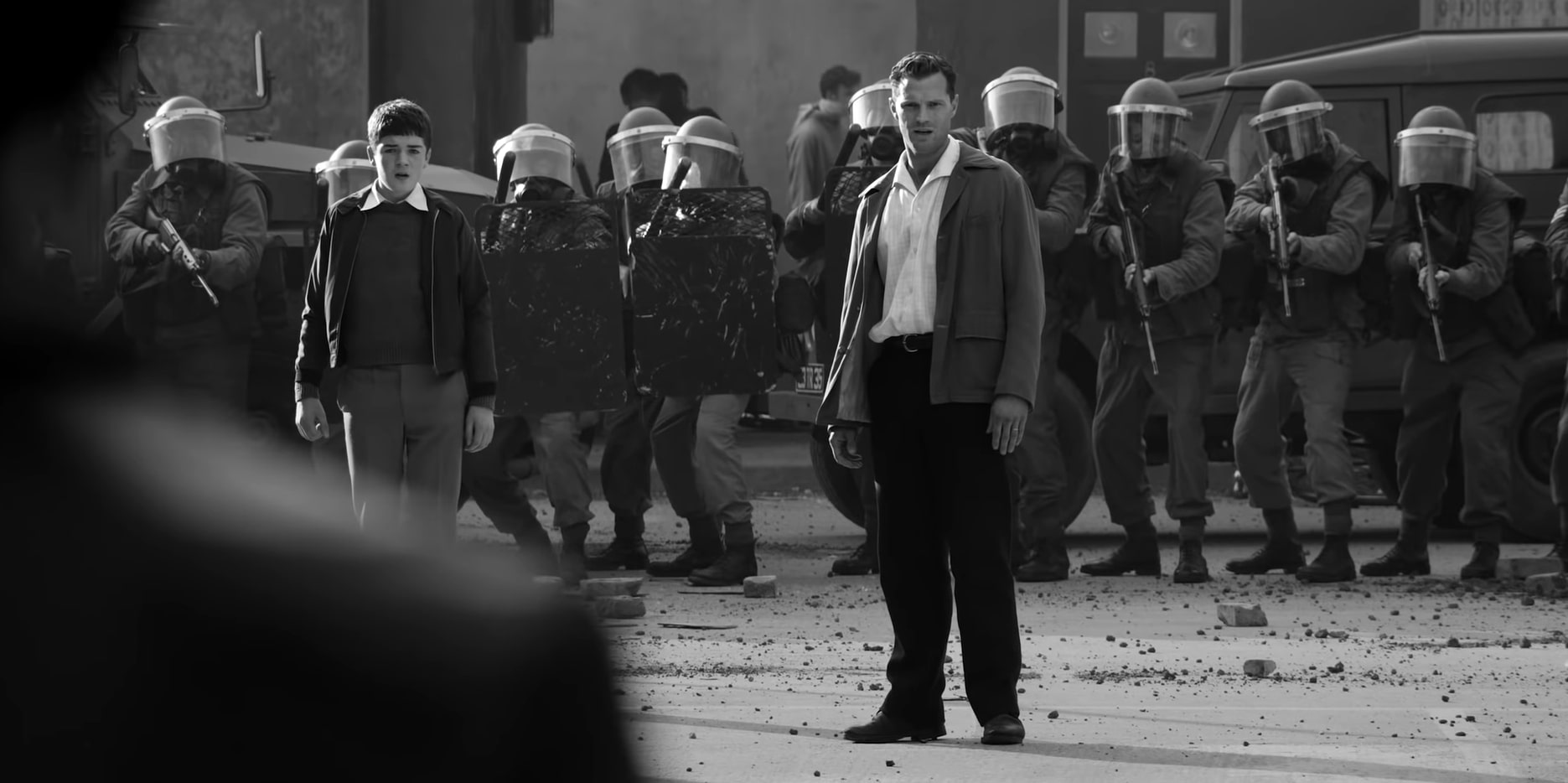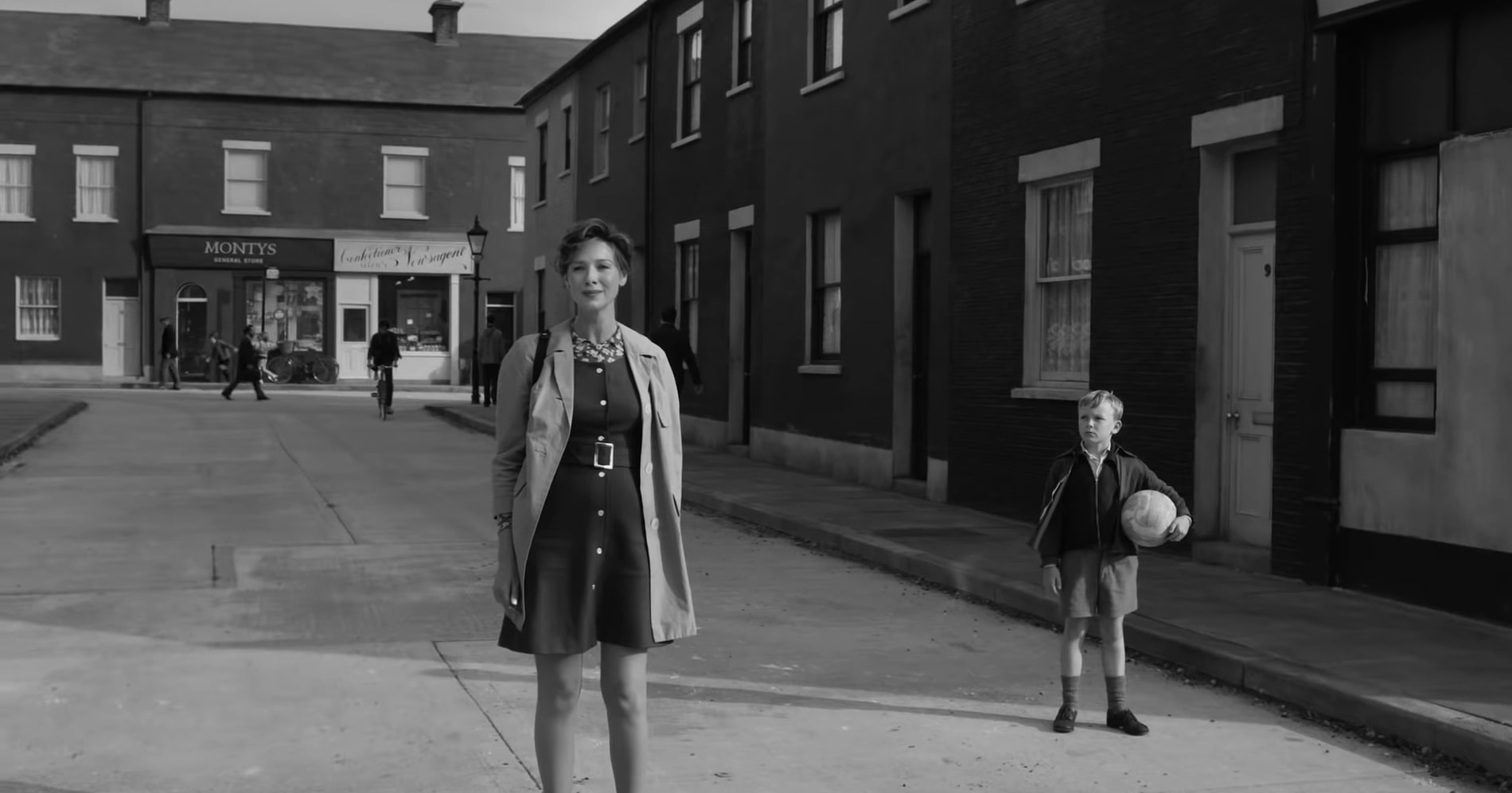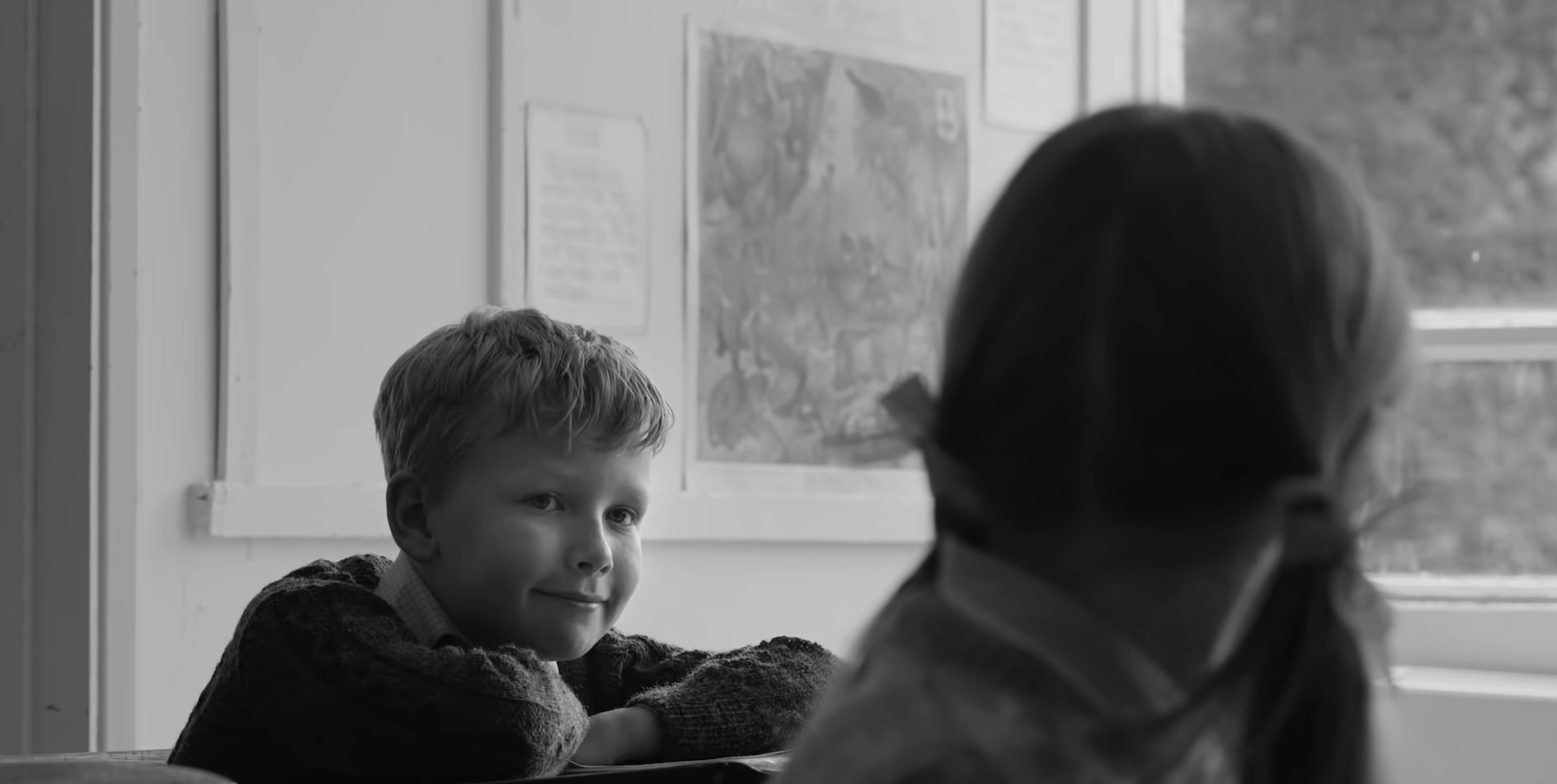Set in Belfast, Northern Ireland, Kenneth Branagh’s coming-of-age film ‘Belfast’ follows the lives of Buddy and his working-class family during the tumultuous 1960s. As the civil unrest between the nationalists and unionists disrupts life and order in Northern Ireland, Buddy’s parents and grandparents consider moving to England for safety. The film progresses through how the happenings of the time and the subsequent decisions of Buddy’s family harm his innocence and his relationship with his hometown.
As a heart-rending drama, ‘Belfast’ succeeds in portraying the nuances of childhood innocence and purity that are interrupted and injured by the chaos that ensues in the adult world. The period film also depicts the turbulence surrounding the town through a nine-year-old child’s POV, intensifying the emotional effect on the audience. As the film progresses, one can’t help but wonder about the authenticity of Buddy’s accounts. On that note, we have dived into the genesis of ‘Belfast’ to know whether the film is based on true lives.
Is Belfast Based on a True Story?
‘Belfast’ is partially based on a true story. The film is a fictitious account based on the personal experiences of director Kenneth Branagh, who was born and brought up in Belfast, Northern Ireland before moving to Berkshire, England, in 1969. Branagh’s family moved to England for safety as their home country was witnessing the prime of sectarian turmoil, which is known as the Troubles. When the conflicts between the chiefly protestant unionists and the chiefly catholic nationalists rose, Branagh’s family found a home and security in England, but at the cost of ripping Branagh apart from his hometown.

While attending TIFF Studio, Kenneth Branagh talked about the foundation of his film. “It’s really the story of something that happened to me when I was nine years old. That happy life with a big extended family in a very exciting place to live, where life was about playing football, family, meals, a bit of church, and lots of movies. How you dealt with life once, just as we felt all in the last 18 months or so, when your world is turned upside down by uncertainty,” he said as per Deadline.
For Branagh, ‘Belfast’ offered an opportunity to revisit his own childhood and family during the troublesome period of the late ‘60s. “I suppose I wanted to get back in touch with my nine-year-old self and to try and understand what that family was going through, what families can go through in times of great change when they have to make very, very important decisions involving sacrifice in the midst of potential danger, and somehow still find a way, whenever they can, to keep it light and to laugh,” Branagh said to Deadline’s Contenders Film: London.
The changes that are enforced by the violent disputes in Buddy’s childhood are based on Branagh’s relocation to England and the emotional conflicts he faced as a result of the move. “In a way, innocence was lost, things would never be the same again. It’s something I’ve been trying to understand, as I grow older, that it was a moment when the world tried to insist that you put away childish things, and demanded that you are dragged into this perilous adulthood,” Branagh said to Vanity Fair.

The writing process of the film was an act of evoking Branagh’s own memories and experiences to frame the lives of Buddy and his family. Upon completing the script, Branagh consulted his siblings regarding the film, who responded emotively. “They were very supportive. But my sister said to me, ‘Wow, for a very, very private, quiet man, you really put it out there, haven’t you?’ So, I guess I did. Sometimes it has to happen that way. Sometimes I think things have to come out,” Branagh added.
Even though the film is heavily inspired by Branagh’s own time in Belfast, it’s not entirely based on his life. The film is a blend of fiction and the evocative memories he has about his life as a nine-year-old in the face of the mayhem of the time. “You know, you’re looking at something with 50 years of distance through a nine-year-old’s eyes so there’s no objective truth, there’s just what you hope is an emotional truth and a series of very vivid moments,” the filmmaker added to Deadline.
There is a strong sense of revival that can be seen and experienced upon watching ‘Belfast.’ When that revival is of the filmmaker’s own lost childhood and innocence, there ensues an unequaled feeling of honesty and authenticity. That’s how ‘Belfast’ wins our hearts.
Read More: Best Movies About Childhood


You must be logged in to post a comment.